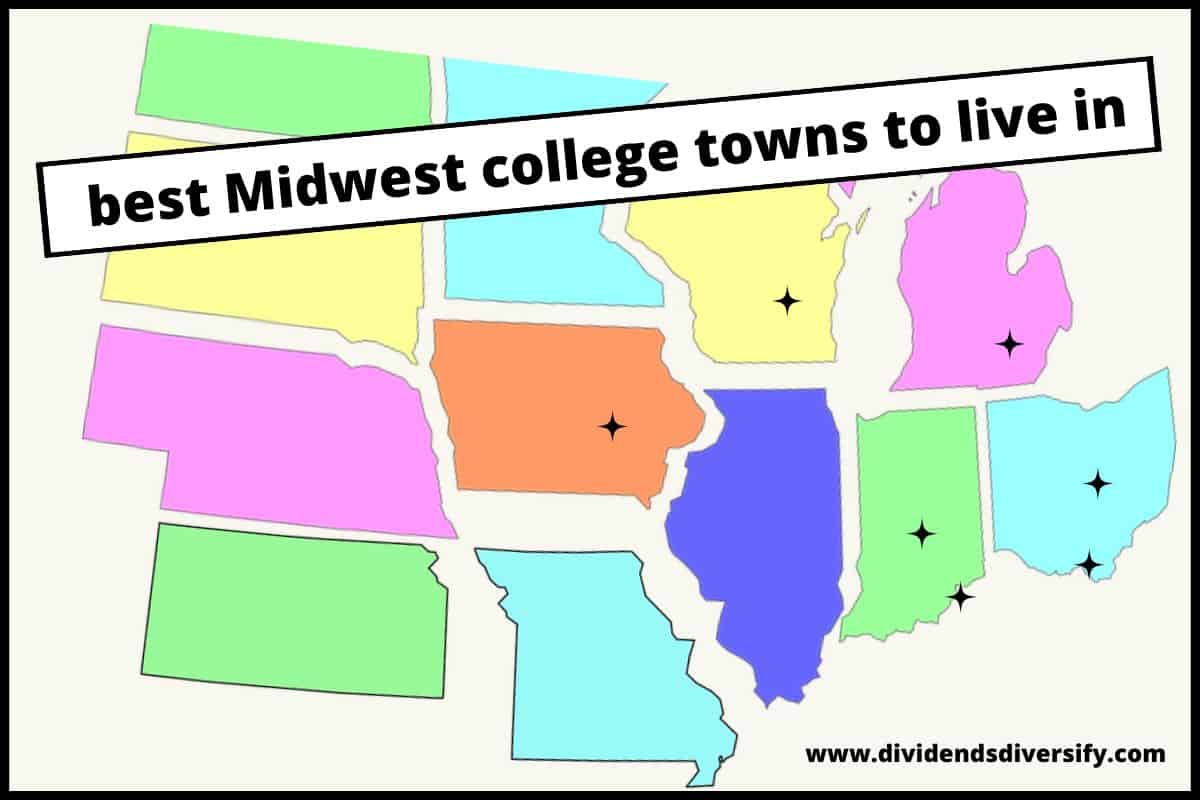When Colleges Close: The Economic Devastation In College Towns

Table of Contents
The Immediate Economic Shockwave
The closure of a college creates an immediate and significant economic shockwave, impacting numerous facets of the college town's financial well-being.
Loss of Direct Employment
The most immediate consequence is the loss of direct employment within the college itself. Thousands of jobs vanish overnight, impacting faculty, staff, and administrative personnel.
- Professors and Instructors: Hundreds of academic positions are lost, impacting highly skilled professionals and their families.
- Support Staff: Numerous roles in maintenance, libraries, dining services, and administrative support are eliminated.
- Administrative Personnel: A significant number of jobs within the college's administrative offices are lost.
The sheer number of job losses dramatically increases local unemployment rates, creating a domino effect across the community. For example, the closure of a medium-sized college might lead to the loss of over 1,000 jobs, significantly impacting the town's employment landscape and overall economic health.
Reduced Spending and Consumer Demand
The closure of a college leads to a dramatic decrease in spending by students, faculty, and staff. This reduced consumer demand directly impacts local businesses.
- Local Businesses Suffer: Restaurants, shops, bookstores, entertainment venues, and other businesses that rely on the college community experience a sharp decline in revenue.
- Property Values Plummet: Decreased demand for housing and commercial properties leads to a significant drop in property values.
- Reduced Tax Revenue: The decline in property values and business activity results in lower tax revenue for the local government, impacting essential services.
Decline in Property Values
The reduced demand for housing and commercial properties following a college closure directly translates to a significant decline in property values.
- Homeowners Face Losses: Homeowners find it increasingly difficult to sell their properties, resulting in substantial financial losses.
- Rental Market Collapses: The reduced student population leads to a surplus of rental properties, driving down rental rates and impacting landlords' income.
- Economic Downturn Worsens: The decline in property values further exacerbates the overall economic downturn in the college town.
Long-Term Economic Consequences
The economic consequences of college closures extend far beyond the immediate aftermath, creating long-term challenges for affected college towns.
Brain Drain and Population Decline
The closure of a college leads to a "brain drain," as young, educated individuals leave the town in search of opportunities elsewhere.
- Loss of Skilled Labor: The exodus of graduates and skilled professionals weakens the local workforce, hindering economic growth.
- Population Decline: The loss of residents leads to a decline in population, further impacting the town's economic vitality.
- Reduced Innovation: The absence of a vibrant academic community reduces the potential for innovation and entrepreneurship.
Strained Public Services
The reduced tax revenue resulting from college closures puts a significant strain on local government budgets and essential public services.
- Cuts in Public Services: Schools, hospitals, libraries, and other vital services may face budget cuts, impacting the quality of life for residents.
- Infrastructure Deterioration: Lack of funding can lead to the neglect of infrastructure, further hindering economic development.
- Increased Burden on Taxpayers: Remaining taxpayers are left to shoulder the increased burden of supporting public services.
Difficulty Attracting New Businesses
The negative economic climate created by a college closure makes it significantly more difficult to attract new investments and businesses.
- Negative Perception: The town gains a negative reputation as an economically depressed area, deterring potential investors.
- Lack of Skilled Workforce: The brain drain results in a shortage of skilled labor, making it difficult to attract businesses that require a specialized workforce.
- Limited Infrastructure: Deteriorating infrastructure further discourages businesses from relocating or expanding in the town.
Case Studies of College Closures
The closure of [College Name] in [Town Name] resulted in a [percentage]% decrease in population and a [percentage]% drop in property values within two years. [Link to relevant news article or report]. Similarly, [another example].
Mitigation Strategies and Potential Solutions
While the impact of a college closure is devastating, proactive measures and strategic planning can help mitigate the economic consequences.
Diversification of the Local Economy
Reducing reliance on the college requires a concerted effort to diversify the local economy.
- Attract Tech Companies: Incentivize tech companies to establish operations in the town, creating high-paying jobs.
- Develop Tourism: Invest in tourism infrastructure and marketing to attract visitors and boost local businesses.
- Focus on Specific Industries: Identify and cultivate industries that align with the town's resources and workforce.
Government Support and Assistance
Government support is crucial in helping communities recover from the economic shock of a college closure.
- Retraining Programs: Provide funding for retraining programs to help displaced workers acquire new skills.
- Economic Development Initiatives: Invest in infrastructure improvements, business incentives, and economic development programs.
- Financial Aid Packages: Offer financial assistance to businesses and individuals affected by the closure.
Community Engagement and Collaboration
Community involvement is essential in developing effective recovery plans.
- Community Forums: Organize community forums to discuss challenges and solutions.
- Collaboration Between Businesses and Government: Foster collaboration between local businesses and government agencies to develop and implement recovery strategies.
- Public-Private Partnerships: Explore opportunities for public-private partnerships to leverage resources and expertise.
Conclusion
The economic consequences of college closures in college towns are severe, impacting employment, consumer demand, property values, and overall economic vitality. The immediate shockwave is followed by a long-term decline, characterized by brain drain, strained public services, and difficulty attracting new businesses. Understanding the economic devastation caused when colleges close is crucial for proactive planning. Learn more about supporting your local college town and advocating for policies that protect these vital communities. By implementing diversification strategies, seeking government support, and fostering community engagement, college towns can increase their economic resilience and prepare for potential future challenges.

Featured Posts
-
 Vnuk Mikhaelya Shumakhera Pervye Podrobnosti
May 20, 2025
Vnuk Mikhaelya Shumakhera Pervye Podrobnosti
May 20, 2025 -
 Fremantle Q1 Financial Results 5 6 Revenue Decrease Explained
May 20, 2025
Fremantle Q1 Financial Results 5 6 Revenue Decrease Explained
May 20, 2025 -
 Solve The Nyt Mini Crossword Hints For April 26 2025
May 20, 2025
Solve The Nyt Mini Crossword Hints For April 26 2025
May 20, 2025 -
 Understanding A Wintry Mix Of Rain And Snow
May 20, 2025
Understanding A Wintry Mix Of Rain And Snow
May 20, 2025 -
 Maltraitance Et Abus Sexuels Presumes L Affaire De La Fieldview Care Home A Maurice
May 20, 2025
Maltraitance Et Abus Sexuels Presumes L Affaire De La Fieldview Care Home A Maurice
May 20, 2025
